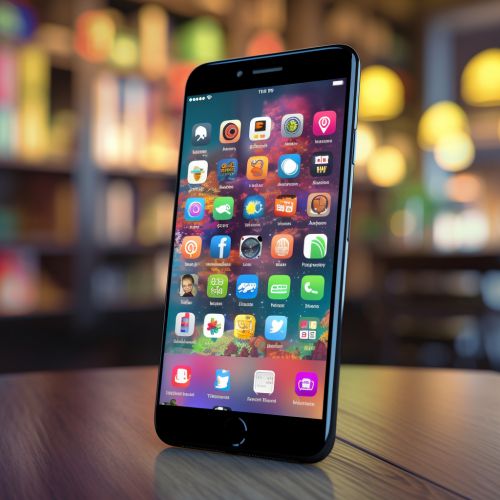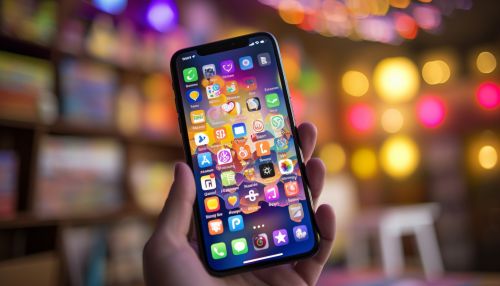Mobile app
Overview
A mobile application, also known as a mobile app, is a type of application software designed to run on a mobile device, such as a smartphone or tablet computer. Mobile applications frequently serve to provide users with similar services to those accessed on PCs. Apps are generally small, individual software units with limited function. This use of software has been popularized by Apple Inc. and its App Store, which sells thousands of applications for the iPhone, iPad and iPod Touch.


Development
Mobile app development is the act or process by which a mobile app is developed for mobile devices, such as personal digital assistants, enterprise digital assistants or mobile phones. These applications can be pre-installed on phones during manufacturing platforms, or delivered as web applications using server-side or client-side processing (e.g., JavaScript) to provide an "application-like" experience within a web browser.
Types of Mobile Apps
There are three basic types of mobile apps if we categorize them by the technology used to code them: native apps, hybrid apps, and web apps.
Native Apps
Native apps are created for one specific platform or operating system. They are coded in a programming language such as Objective-C for iOS or Java for Android operating systems. Native apps also have the advantage of being faster and more reliable in terms of performance.
Hybrid Apps
Hybrid apps are a combination of native and web apps. This type of application has cross-platform compatibility but can still access phone’s hardware. Hybrid apps are developed using HTML, CSS, and Javascript, and then wrapped in a native application using platforms like Cordova.
Web Apps
Web apps are not real applications; they are really websites that, in many ways, look and feel like native applications. They are run by a browser and typically written in HTML5.
Mobile App Distribution Platforms
Mobile applications are distributed through application distribution platforms, which are typically operated by the owner of the mobile operating system. Some of the popular distribution platforms include the App Store, Google Play Store, and the Windows Store.
Mobile App Monetization
Monetization strategies for mobile apps include freemium apps, in-app purchases, in-app advertising, and paid apps. The choice of monetization model can have a significant impact on the success of a mobile app.
Mobile App Security
Security is a significant concern in the mobile app industry, with many apps storing sensitive user data. Mobile app developers need to consider security throughout the development process to protect user data and prevent security breaches.
Future of Mobile Apps
The future of mobile apps lies in the advancement of technology, including augmented reality, virtual reality, and artificial intelligence. These technologies will continue to shape the mobile app industry in the years to come.
